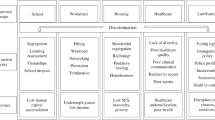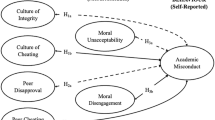Abstract
Recent provincial government policy proposals related to university governance and substantive and procedural autonomy has had the effect on Ontario university faculty members of throwing the cat among the pigeons. The policy proposals were based on an articulated need for “zero tolerance” of various forms of harassment, in the first instance voiced by interest groups representing gender, race, political affiliation, sexual orientation and a number of other concerns, and consequently transformed into a provincial government position by politicians.
As the province is the main funding agency for universities, the threat to a number of aspects of university integrity is a real one. However, there appears to be much more at stake than a simple threat to the fair treatment of different minorities in the university setting. Such proposals, if articulated as formal policy, have the potential to erode those very elements around which universities have been created and for which universities continue to exist, namely, substantive and procedural autonomy and academic freedom.
While in no way denying the rights of minority groups or humans in general as espoused by changing norms in a representative democracy, this article addresses the controversy, defines the freedoms at stake and extrapolates upon the implications of their erosion.
Similar content being viewed by others
References
Austin, D. (1975, Summer). Et in arcadia ego: Politics and learning in Ghana.Minerva,13, 236–239.
Benedetti, P. & Dreschel, A. (1994, February 19). Government approved thinking caps?The Hamilton Spectator, p. A12.
Berdahl, R. (1971).Statewide coordination of higher education. Washington, DC: American Council on Higher Education.
Berdahl, R. (1984).Autonomy and accountability in higher education: U.S. and comparative experiences. Paper presented at the American-Asian Conference on Higher Education, Alor Setor, Malaysia.
Britain Committee on Higher Education.Report of the Committee on Higher Education, 1963. London: Her Majesty's Stationery Office.
Campbell, G. (1971).Community colleges in Canada. Toronto: Ryerson Press.
Capen, S. (1935).The responsibility of the boards of trustees for the preservation of academic freedom. Paper presented at the Conference of Trustees of Colleges and Universities, Lafayette.
Comment: (1974, October). The enemies of academic freedom.Minerva,12, 405–415.
Corson, J. (1975).The governance of colleges and Universities. New York: The McGraw-Hill Book Company.
Dressel, P. & Faricy, W. (1972).Return to responsibility. San Francisco: Jossey-Bass Inc.
Dressel, P., Freeman, T. & Lynd, A. (Eds.). (1980). The nature and components of autonomy.New Directions for Institutional Research,26, 1–9.
Duff, J. & Berdahl, R. (1966).University government in Canada. Toronto: University of Toronto Press.
Fraser, A. (1985).Cromwell, our chief of men. London: Methven London Ltd.
Hare, K. (1965).On university freedom in the Canadian context. Toronto: University of Toronto Press.
Hobbs, W. (1982, June).Academic and legal values. Occasional Paper No. 10. Buffalo, NY: Department of Higher Education, Faculty of Educatinal Studies, State University of New York.
McIver, R. (1955).Academic freedom in our time. New York: Columbia University Press.
Metzger, W., Kadish, S, De Bardeleben, A., & Bloustein, E. (1969).Dimensions of academic freedom. Urbana, IL: University of Illinois Press.
Moodie, G. & Eustace, R. (1974).Power and authority in British universities. Montreal: McGill-Queen's University Press.
Ontario Ministry of Education and Training. (1993).Framework regarding prevention of harassment and discrimination in Ontario universities. Ottawa: Ontario Ministry of Education and Training.
Ross, M. (1976).The university. New York: The McGraw Hill Book Company.
Rushton, P. (1988). Race differences in behaviour: A review and evolutionary analysis. Personality and Individual Differences,9(6), 1009–10024.
Shils, E. (1975, Spring). The academic ethos under strain.Minerva,13, 1–37.
Trevena, C. (1994, February 20). Campus PC offends spiky Ontario dons.The Manchester Guardian, p. 3.
Zoglin, M. (1976).Power and politics in the community colleges. Palm Springs, CA: ETC Publications.
Author information
Authors and Affiliations
Rights and permissions
About this article
Cite this article
Richard Bond, W. Zero tolerance: A new enemy of academic freedom?. Interchange 27, 103–110 (1996). https://doi.org/10.1007/BF01807290
Issue Date:
DOI: https://doi.org/10.1007/BF01807290




